The Ministry of Defence (MOD) has announced a £1 million contract award to Alford Technologies Ltd for the procurement of GLADIUS User-Filled Off-Route Mine systems.
The move aims to “mitigate a current capability gap in Lethal Barriers (mines)” and strengthen the British Army’s operational flexibility in defensive and offensive scenarios. The contract, awarded without prior publication due to proprietary considerations, will bolster NATO readiness and interoperability.
Bridging a Capability Gap
The GLADIUS system represents a reintroduction of anti-tank mine capability into the British Army, a vital measure for addressing current challenges in battlefield mobility and denial operations. According to the MOD’s notice, the system will provide “a means for defensive actions, offensive ambush and sabotage”, enabling the British military to respond effectively to evolving threats.
The MOD highlighted that the contract would support “training, capability development, and bolster NATO readiness” while ensuring interoperability with allied forces. The mines will also align with existing safety standards for in-service systems, minimising additional Defence Lines of Development (DLOD) impacts.
What Are GLADIUS Off-Route Mines?
The GLADIUS User-Filled Off-Route Mine system is a modern anti-tank mine designed for versatility and precision. Unlike traditional buried mines, off-route mines are deployed along paths to target the sides of armoured vehicles, exploiting their weaker points. Key features of the system include:
- User-Filled Design: The system allows operators to customise the explosive charge for specific mission requirements.
- Directional Lethality: Explosive force is focused in a particular direction, improving efficiency and minimising collateral damage.
- Remote Deployment: Operators can remotely detonate the mine at an optimal moment, increasing tactical flexibility.
- Mobility: These mines can be quickly deployed and retrieved, making them ideal for ambushes and mobile operations.
- NATO Interoperability: Already in use by 11 NATO nations, the system facilitates shared knowledge, training, and operational compatibility.
The GLADIUS system, say the MOD, enhances the British Army’s ability to deny enemy movement, create chokepoints, and conduct ambush operations against armoured vehicles.
Why Alford Technologies?
Alford Technologies Ltd, based in Newcastle upon Tyne, is the original equipment manufacturer (OEM) and intellectual property owner of the GLADIUS system. The MOD stated that “Alford is the only economic operator with the proprietary information to meet this requirement and meet MoD’s capability gap.”
The MOD justified the single-source procurement under the Defence and Security Public Contracts Regulations 2011, citing “technical challenges in maintaining and operating alternative systems.”
Operational Impact and NATO Integration
The inclusion of GLADIUS mines enhances NATO’s collective defence posture. With the system already in use by multiple NATO forces, the British Army benefits from “common spares, shared training opportunities, and streamlined operational practices.” This interoperability strengthens NATO’s ability to respond cohesively to threats, according to the notice.
The contract, valued at £1 million, is expected to be fulfilled within three months, depending on production timelines. While relatively small in monetary terms, this procurement represents a significant step in addressing the UK’s capability gap in lethal barriers.
At the UK Defence Journal, we aim to deliver accurate and timely news on defence matters. We rely on the support of readers like you to maintain our independence and high-quality journalism. Please consider making a one-off donation to help us continue our work. Click here to donate. Thank you for your support!




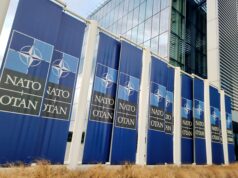
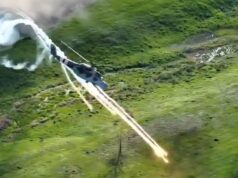

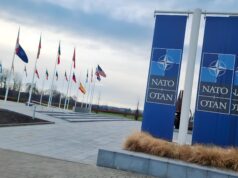

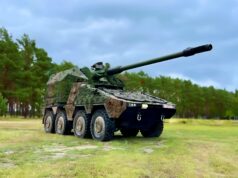


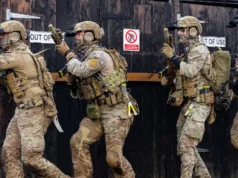

Horrible but necessary. Cluster munitions too. Hopefully has a expiry safety. We forgot with Afghanistan what peer warfare is like and what it needs.
The RE have relaunched mine doctrine. The mines they are talking about have a limited time before they can’t function
Agree, we have relied on the US for too long on such systems but we can no longer depend on it. Very sad but we need to pull out of all the land mine treaties and cluster munitions. We can no longer tie our military up and pretend that war is civilised. Unilateral disarmament should never be allowed again. Same goes for nuclear weapons. As Europe we need to match the nuclear weapon levels of our adversaries. That’s basically Britain and France doubling and moving up to 1,000 weapons with China and Russia all potentially agreeing to 1,000 each.
Hopefully the RN starts investing in sea mines again, these would be vital in any war with Russia or China.
Completely agree..the only way to make war civilised is to never go fully kinetic and the only way to do that is to deter the enemy and the only way to do that is to have, show and communicate the capability and will to destroy the enemy in any way possible.
Thus with the sea mines, It would seem that “the horns of a dilemma should present enemies of the British armed forces with something to think about under pressure”.
I noticed that the media stopped criticizing anti personnel mines and cluster bombs…
Which tells you pretty much what is the media.
If it was a war that the mainstream did not approved the criticism will be back right away…
After many years of being asleep at the helm, I get a sense that our defence community is waking up.
I thought the UK had banned the use of all mines and cluster munitions??
No just victim initiated AP mines. We just let everything go our of date. Stand fast the barmines uses in Afghanistan
As if current mines/clusters don’t have anti lifting, tempering systems.
There are technology fixes for all these weapons covered in the treaties. That being said I think reciprocity is the new mantra of the world. We only enter into weapons treaties that China, Russia and the USA adhere to. Otherwise it’s nonsense.
Just 1Million ? That’s a change from the normal amounts we are used to seeing. How many mines do we get for that figure ?
This is just the initial order of a preexisting system, cost is low and other users have already integrated and established them within NATO. Off of the top of my head the order was for just 1,000 mines with a rapid delivery date, like with other low cost mass munitions (such as LMM) this will be the first of many orders to keep a small but manageable magazine of weapons immediately ready for deployment to emerging conflicts; the production lines will be kept active long term and the skilled labour retained with persistent small orders. As they take so little time and material to produce it’s more cost efficient to expand production in times of need rather than keeping tens of thousands of very low cost and simple explosives stored on MoD books and taking the limited magazine space away from more complex weapons, other future programs such as the various FPV/bomber drones are following suit with small orders but long term production plans. It doesn’t make financial sense to store such cheap and easy to produce weaponry with the way the Army has to store and maintain munitions here, if Ukraine can produce millions of low cost weapons from a cold start in production we can to.
The Russians slowed the UKR offensive in 2023 with a deep network of minefields, obstacles, and trench systems, WW2 Kurk style.
Could such a thing work going forwards regards slowing any attack if peace breaks out and some sort of buffer zone between occupied UKR and UKR proper is instigated?
Considering the manpower requirements for such a thing.
I know Russia has rejected the idea of NATO “peacekeepers” in UKR and that they could always do an Ardennes/Maginot line by bypassing it from the north.
But just voicing my thoughts?
Nato members guarding Trumps Mineral grab then.
Reckon Greenland has much more mineral and rare earth elements to offer, especially now that Trump has dumped all over any Climate agreements.
Drill baby Drill !
One can only guess Greenland is full of certain minerals thats why he wants access to it!
I’m not sure there ARE much in the way of unique or rare mineral resources in Greenland. I suspect it may be the enhanced access to the ‘High North’ that may interest him more. That’s if there is any rationality behind it all, of course…
It works in Eastern Europe as well a large peer wars..because essentially both negate the power of the short set piece or manoeuvre war.. in the east the mud seasons essentially curtail manoeuvre warfare as your going to get bogged down after a short period of opportunity..the enemy can then thrown up a load of mines and reposition defences. Essentially that’s why Ukraine has gone pretty much nowhere in 3 years. Also the large peer war means it’s all about industrial, manpower, wealth and political will..so mines are useful as they are efficient.
in anticipation of truce and stopping further russian incursion
I thought mines were deemed illegal in the same sense as germ warfare?
Clearly there will be a border channel between ukraine and Russia in future months where access denial will be a long term strategy. I’m not sure mines are effective though. Putin will just send expendable forces to walk or drive over them.
How are we going to create a border there which denies all future access? Every road and bridge will need permanently disabling.
Not if, like Russia did prior to Ukraine’s delayed and bungled spring offensive there is a minefield miles in depth and all road, rail and bridges are severed. Good luck punching through that mess quickly.
Aaron, only anti-personnel mines and scatterable anti-tank mines are illegal but some countries including USA did not sign the Ottawa Treaty.
1 million won’t buy all that many anti tank mines, unless of course it’s just to pump prime a manufacturer in preparation for a larger order?
It is an unfortunate fact of life that there will always be need to prepare for war, hopefully it will never be needed but be prepared – the Falklands proved that.
We are still one of the most highly rated military countries ( I.e. we are still one of the top blue water navies )
However if we continue to give money away and allow all to influx our country and it’s system we are taking away from our own security and defence
More mines the better. Look at how devastating they’ve been for both sides in Ukr.
I believe the initial order is enough to ring-fence an area the size of Burnley and Birmingham. Not very much really, but a start.